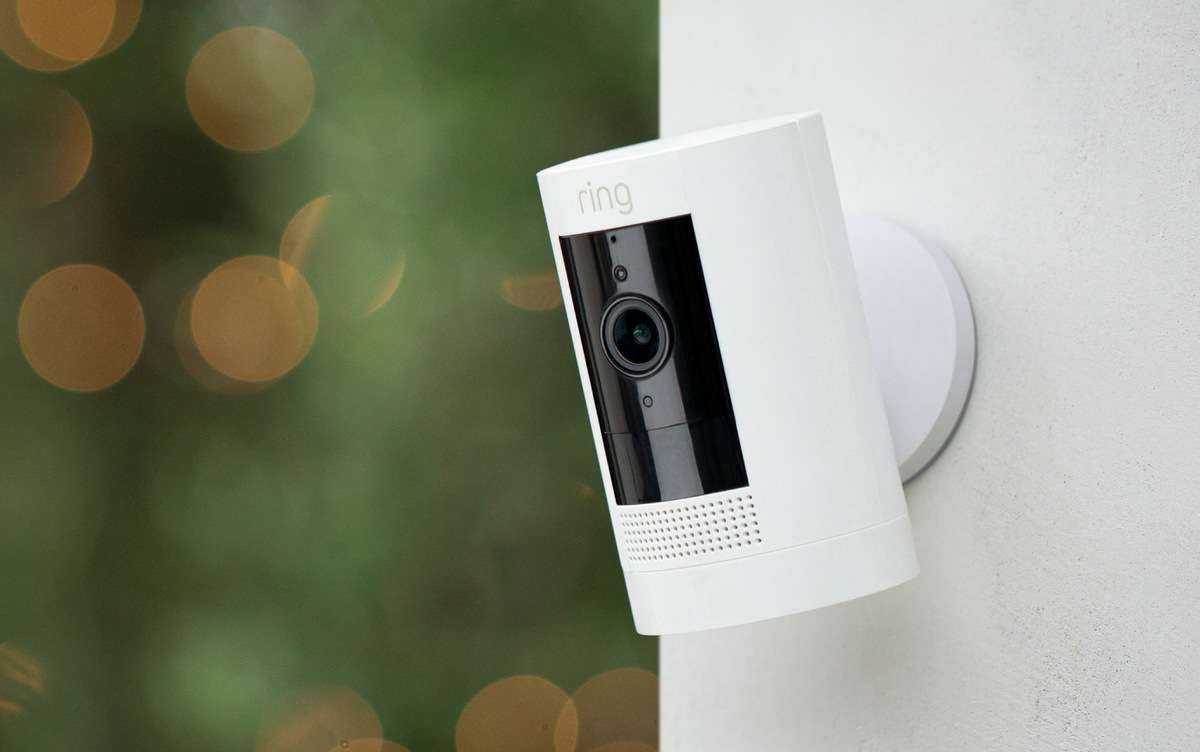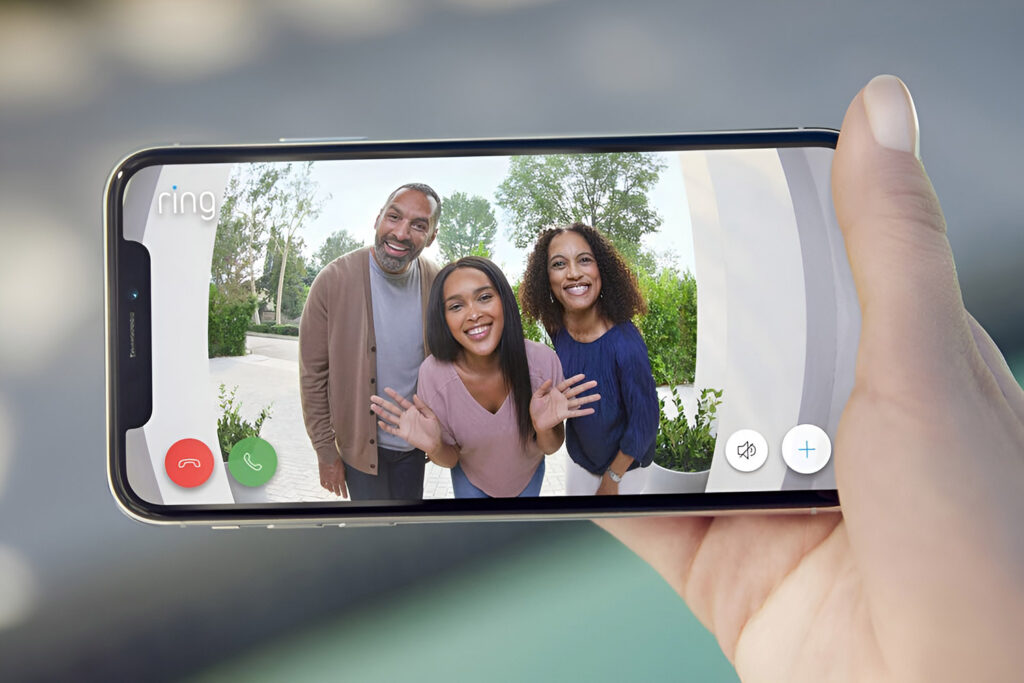Smart home cameras and the information age go hand in hand. The ability to save the videos that our cameras record is important. Whether you’re saving video needed to prosecute someone who vandalized your home, or you caught some amazing nature footage, saving video is critical.
However, at some point, whether it’s space in your Cloud storage, or you just want to get rid of less than desirable footage, you’ll want to delete footage at some point. But once it’s deleted on your end – what about Ring’s? Is the footage still somewhere on their servers with the potential to resurface and be used later?
To answer this, it’s important to first consider how Ring stores and uses your videos.
What are Ring Cameras and Doorbells?
Ring cameras and video doorbells are some of the most frequently used smart home devices today. With the rise in home invasions and burglaries, they’ve quickly become integral parts of smart home security. Ring offers a large selection of cameras for the inside and outside of your home.
One of their most popular items are their Video Doorbells, which come in a wide variety of options.

In addition, they offer other choices for the outside of your home, such as Floodlight and Spotlight cameras that help illuminate even the darkest of areas around your home, such as backyards and driveways.

For the inside of your home, they have the wired Indoor Cam, as well as the versatile Stick-Up Cam that can be used indoors as well as outdoors. A great feature of the Stick-Up Cam is in the name. Using the mount and screws, you can stick the cam up anywhere you need to.

In order to use these devices, you need to download and use the Ring app. The Ring app is where you can see and modify all of the settings for your Ring devices such as the cameras and video doorbells. This is also where all of your motion-detected and live events will be recorded and stored – but only if you have a Ring Protect Plan.

Ring cameras only record to the Cloud via a Ring Protect subscription plan. Without the Ring Protect Plan, none of your motion-detected events will be saved in the Ring app or on the Cloud. They’ll only be available for viewing live when an event occurs and you've received a notification.
So now, suppose you have a Ring Protect Plan and you have saved videos – how long are they saved?
How Long Does Ring Keep Your Recordings?
In the ongoing pursuit of personal information security, you may wonder what happens to your recordings after they’ve been uploaded to the Cloud. You'll also be interested in what role the company Ring themselves plays.
In general, depending on what country you live in, recordings that are in the Cloud/Ring app are kept for at least 30 days before they’re deleted. In the US, videos are stored for up to 60 days. In the EU/UK, the maximum storage time is 30 days.
Ring Protect Plans now give you the option to change how long your videos are stored – via the Control Center section of the app:

You can choose from various increments such as 1, 3, 7, 14, etc. days to store your videos instead of the standard. You can adjust it up to 60 days in the US, and up to 30 days in the EU/UK.
If you want to keep any of your recordings beyond that time frame, you'll need to download them. You can download these videos to your smartphone or other mobile device.

If you sign in to your account on a computer or laptop, you can download the videos there as well.
After the maximum, or your chosen storage time, when your videos are automatically deleted, they’re of course no longer accessible or available to you. But what about Ring? Do they still have a way to retrieve them?
The answer lies in Ring’s Terms of Service. Any of your recordings, or content that you share publicly (such as in Ring’s Neighbors Community forum), may be kept and even shared later on. In addition, they can also share it with authorities if it’s deemed legally necessary.
If this doesn’t sit well with you, you may choose to delete recordings you rather Ring not have access to. But will that solve the issue? What happens to your deleted footage?
Does Ring Keep Deleted Recordings?
So you decide you really don’t want nor need certain recordings, and you delete them. Great, they’re all gone now – right?
According to Ring’s Terms of Service, this may not be the case. The terms state that they may access, use, and even preserve your recordings as well as shared content to share with law enforcement if required to cooperate with certain legal obligations.

In addition, their ToS also indicates that removed (a.k.a. deleted) content may be retained by Ring to cooperate with, again, ‘legal obligations’. However, no doubt hoping to reassure their users, they add in a disclaimer of sorts. The ToS also indicates that videos cannot be accessed by just anybody. In fact, whoever wants access to these recordings needs to provide a valid court order to gain said access.
Whether this allays concerns or not, is dependent on the individuals themselves. And just what constitutes “legal obligations”? This could refer to criminal investigations that may be going on around or near your property, but still has nothing to do with you.
For example, perhaps a thief or other criminal ran away from the scene of the crime, and your outdoor cameras caught sight of them running down the block. Your cameras may potentially have footage of what car they may have gotten into. All of this is no doubt helpful in an investigation.
Even with good reason, you may still be leery about total strangers having access to your information, especially videos that may even include footage from inside of your home. Are there any alternatives to using Ring’s Cloud storage?
Alternatives to Ring Cloud Storage
So let’s say you’re just not comfortable with the idea of Cloud storage and what Ring could or might do with your recordings. So you start to explore options that involve local storage. It’s more secure, and Ring, nor any other company, will have much access to it.
One option that many explore is the Ring Edge. You’ll need to have and be using the Ring Alarm Pro, however. This is because you’ll need to use the Base Station, which is where you’ll insert a microSD card. This is where all of your camera’s footage will be recorded and saved to.
However, the downside to this is it’s not available for all of Ring’s cameras and doorbells. For example, the new Ring Video Doorbell 4, Floodlight Cam Wired Pro, 1st generation Stick-Up Cam and Video Doorbell, will not work with Ring Edge.
You’ll also need a Ring Alarm Pro and $20 per month Ring Protect Subscription. It cannot work without Ring Alarm Pro, so if you’re just using your cameras as standalone devices, this won’t work for you.
If Ring Edge isn't an option for you, Wyze may be your next best bet. Their cameras and video doorbells have the ability to record locally, as well as to the Cloud. By inserting a microSD card into the bottom of their cameras, your cameras will have the ability to store any recorded video locally.

This opens up options such as recording continuously as well.
Eufy is another smart home camera manufacturer that offers local storage. You have the option of having your videos stored locally, in the Cloud, or both. This gives you greater control over who sees and uses your videos.

Of course, no smart home camera system is 100% secure, especially when they rely on an app that's connected to the internet to view video. But having video stored locally does greatly reduce the chance that your video will end up somewhere you don’t want it to.
Storage and Security
Making sure deleted videos don’t resurface is of paramount importance to many – and with good reason! Potentially damaging (or embarrassing) footage that you’ve deleted for privacy reasons is not something you want to see crop up later.
Though Ring reassures its customers that these videos would only be used in absolutely necessary circumstances, many still don’t feel comfortable. Fortunately, smart camera options that offer local storage are available, giving customers more control over how their videos are stored.





